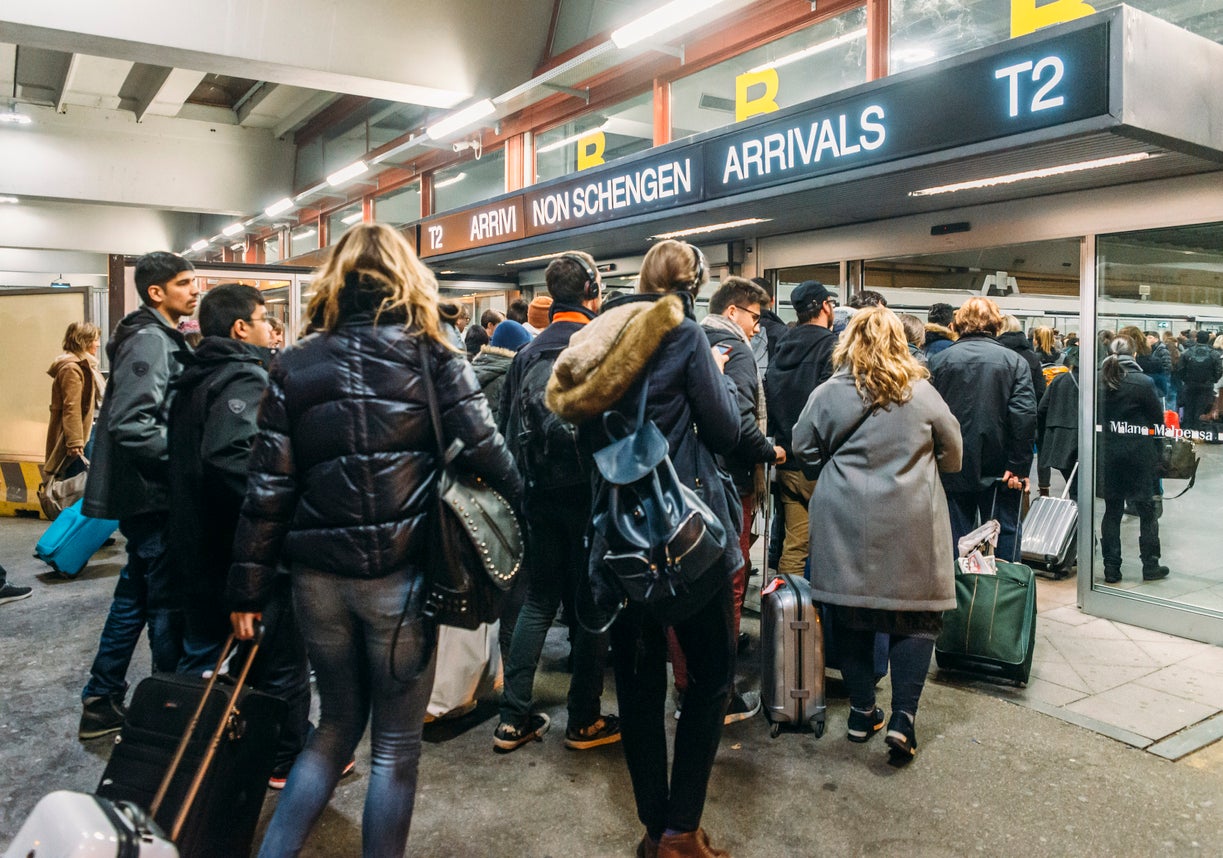What the UK’s ‘third country’ status after Brexit means for British travellers
Analysis: After we leave the EU, Britons will have to pay a modest fee to enter the EU. But as Helen Coffey explains, holidaymakers may face other costs too


We now know that UK citizens will have to pay to enter the EU when the new Etias visa-waiver system launches – assuming of course that Brexit happens. But there remain many more questions about the impact Brexit will have on British travellers.
The European Commission confirmed today that after the UK leaves the EU it will be considered a “third country”, and as such Brits will have to cough up €7 to enter the bloc from 1 January 2021, when the online Etias system comes into play. We’ll join the likes of the US and Canada, along with 59 other countries currently eligible for visa-free travel in the Schengen area.
Once obtained, the Etias is valid for three years or until your passport expires.
Natasha Bertaud, co-ordinating spokesperson for Jean-Claude Juncker, was keen to stress that, although it’s similar to the American Esta, it’s “way cheaper” – and indeed, the whole thing costs a lot less than if UK travellers were to require an actual visa to visit the EU, which would be around the €60 (£54) mark and involve considerably more red tape.
But although the Etias price isn’t high, being a third country comes with other restrictions that privileged UK citizens don’t currently have to think about.
For example, third-country visa-free status means there’s no automatic right of entry – as soon as the Brexit “transition” period ends a border agent could decide to turn you away, and would be perfectly within their rights to do so. They could ask for evidence of “sufficient means of subsistence” for your stay and return, meaning hotel reservations and proof that you’ve booked a return journey.
UK travellers will also be subject to the rule which restricts travel to 90 days in any 180-day period. Getting carried away on an interrailing trip and overstaying your welcome “always results in consequences such as fines or deportation, even when it is unintentional,” according to the Schengen Visa Info website.
Plus, unlike now, having a few days’ validity left on your passport won’t cut it – a minimum of three months will be required as a third country, and the government are currently advising those travelling after 29 March to have six months left, just in case.
There have been some helpful reassurances recently that, even in a no-deal scenario, flights will still operate between the UK and EU, and a visa is not required
“Being placed on an equal footing with countries like Venezuela, in terms of now requiring an entry document to travel to Europe, is deeply symbolic of us being less welcome than before,” Responsible Travel CEO Justin Francis told The Independent. ”If you follow the logic of the rationale for this Etias document – based in part around an assessment of security risks – then the conclusion is that UK travellers will be seen as more of a security risk to the EU after Brexit. This should perhaps concern us more.”
However, a spokesperson for Abta, the UK travel trade association for tour operators and travel agents, told The Independent that there have been “helpful reassurances” recently regarding post-Brexit travel.
They said: “Europe is the number one destination people plan to visit next year, so it’s really important holidaymakers are aware that the new Etias system won’t apply until 2021.
“When it does apply, Etias will mean that you don’t have to get a visa. There have been some helpful reassurances recently that, even in a no-deal scenario, flights will still operate between the UK and EU, and a visa is not required.”
It is still unclear whether UK travellers will be hit by extra costs such as having to pay for mobile roaming abroad – charges are currently prohibited between EU countries, but this will cease to apply to British holidaymakers in the event of no deal.
Brits might also have to fork out £5.50 for an international driving permit to get behind the wheel on the continent, while the Ehic scheme, which allows citizens of European Economic Area (EEA) countries and Switzerland to “access state-provided healthcare during a temporary stay”, will end for us after Brexit in the absence of an agreement on future relations. A continuation would have to be negotiated; Abta advises holidaymakers and business travellers to ensure they have appropriate travel insurance in the meantime.
On the flip side, for EU citizens visiting the UK on a reciprocal visa-free basis post-Brexit, the terms might be more favourable. “The current UK visa-free regime allows a longer period of stay than Schengen,” states the European Commission – six months as opposed to 90 days.
Travel could become harder for EU nationals in some ways though; a leaked Home Office document said: “We intend to require all EU citizens to travel on a passport.”
Currently EU citizens with national ID cards can visit more than 30 foreign nations including the UK and, as a result, levels of passport ownership in countries with ID cards are lower than in Britain.
Join our commenting forum
Join thought-provoking conversations, follow other Independent readers and see their replies
Comments